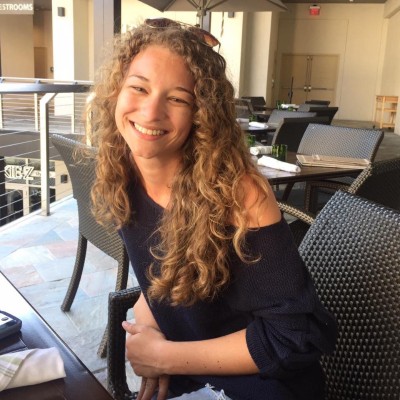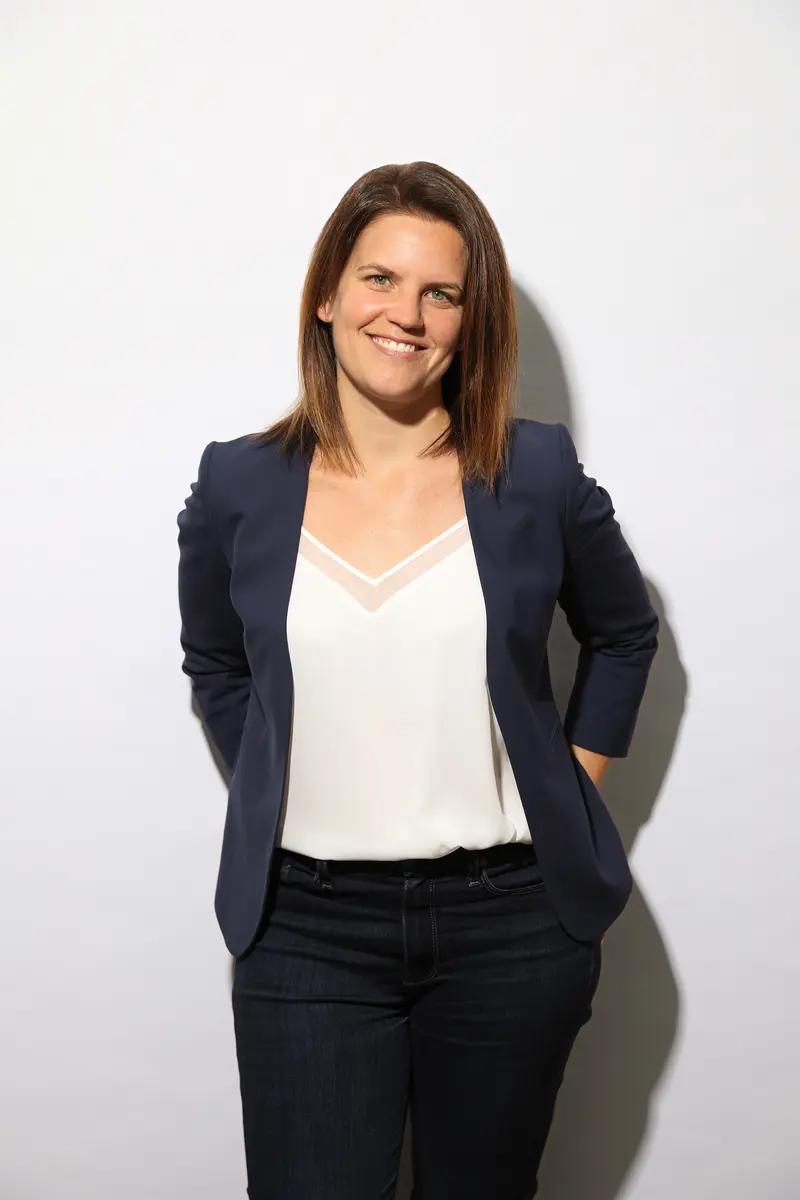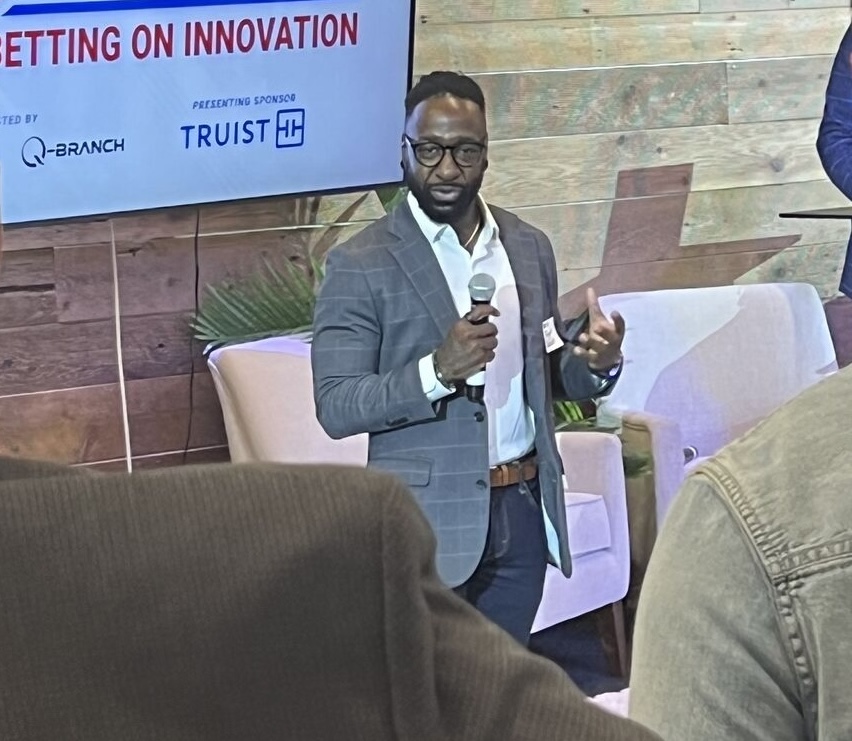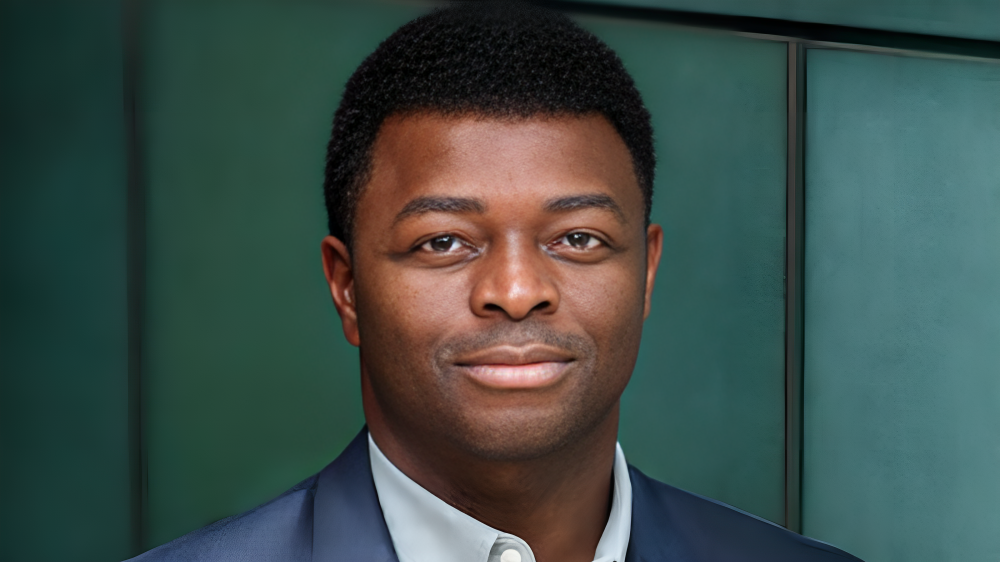For Samir Goel, co-founder and CEO of Esusu, the many faces of poverty are not an abstract concept but a memory from two different continents.
His story began in Schenectady, New York, but unfolded dually in the family-filled streets of New Delhi, India. It was there, in the city's sprawling slums, that he saw firsthand that electricity and running water were luxuries many could not afford.
This life between two homes revealed a profound paradox to him. The more he explored, the more Samir noticed a sharp contrast in the outlook between those struggling in the United States and India. Despite India's more visceral challenges, it was clear the American dream was fractured, leaving the population visibility hopeless.
Samir is looking to rewire this thinking while upending the establishment, starting with consumer purchasing power. Together with his co-founder, Abbey Wemimo, they built Esusu, a financial health platform specifically designed to increase renter credit.
They began this journey with a single premise: “No matter where you come from, what you look like, or your financial identity, it should never determine where you end up in life.”
A Tale of Two Struggles
Samir’s life began with a transatlantic journey he was too young to remember, born in Schenectady shortly after his mother immigrated. Yet his childhood was profoundly shaped by a second home: the bustling streets of New Delhi, where his extended family was located.
Navigating this cross-cultural household, he was immersed in what he describes as a “very collectivist society.”
“You just see a greater sense of duty and sacrifice, and family is everything,” he explains, a stark contrast to America’s individualistic culture. “We worship entrepreneurs, we worship individuals who have succeeded against all odds.”
These lofty ideals painted a vibrant picture of the opportunities awaiting them in the United States. When the family officially immigrated, they felt they had finally arrived—only for that dream to be quickly tempered by reality.
“We were met with a pretty rude awakening when my father was mugged on one of his first days in the country,” he recalls. “That really set the tone for a lot of my childhood, where I watched my parents work miracles without a credit score and limited financial resources.”
For Samir, the lesson was clear: a person’s financial identity in America holds a power akin to a green card. Without it, he saw how people could be permanently left behind, systematically locked out of opportunities for jobs, housing, or financing.
“You often will find yourself paying a premium in every single aspect of your life,” he explains. Yet, in the face of these systemic hurdles, Samir’s parents met the challenges head on, tirelessly working until the family began to not only stabilize, but thrive.
Climbing the Ladder
Though not living in deep poverty, Samir’s family was raised in what he calls “an average low-income household in India,” a reality that instilled in him a profound appreciation for fundamental comforts like electricity and warm showers.
Yet, within this context of financial constraint, Samir was shielded from a sense of deprivation. It was only in hindsight, looking back as an adult, that he fully realized his family’s economic standing.
“One thing I give my parents a tremendous amount of credit for is that's never the experience we had,” Samir says. His parents masterfully reframed their situation not as ‘limited means’, but as an extremely fiscally disciplined household, where they emphasized that they would not be “wasting money on anything that's not direct ROI.”
Through this lens of prudence rather than lack, Samir watched his parents' steadfast climb the economic ladder, moving them steadily toward the middle-class dream. He now sees with clarity how his immigrant parents truly “worked miracles” for their children.
This legacy of sacrifice, however, made his own career choice a point of tension. After his previous, more conventional career paths were shot down, he finally presented his entrepreneurial ambitions to his parents as a fait accompli, recognizing the unfathomable nature of his decisions to his family.
The irony, which he now grasps in hindsight, is that his parents were the original entrepreneurs in the family. They were the ones who took the truly monumental risk by coming to America.
“That's equally bold, if not bolder, to come to a land where you don't speak the language, you don't know the culture, don't have any money, and try to create a life for yourself.”
This foundational story of immigrant perseverance became the bedrock upon which he would build his own life’s work.
Good Cause in a Suit
Having a foot in both worlds gave Samir a unique view of what different communities consider hardships. It also gave him a sense of appreciation for opportunities available to his family in America.
But as the years passed, he began to see the dream his family achieved slip out of reach for others – both immigrant and native.
One aspect that stood out to Samir was the food waste in America. After growing up in a household where hell would freeze over before a morsel of food was wasted, he was left speechless watching people go hungry in the world’s wealthiest country.
“Frankly, nobody in this country should be hungry, homeless, or not have access to healthcare or education,” Samir asserts.“I think all of my work has really been a derivative of some of the lived experiences that I've had or family has had – food should never be taken for granted.
So when he ended up in New York City, attending event after event that ended with d'oeuvres and full pizzas in the trash, he just kept thinking “somebody needs this food.”
Eventually, he connected with his Pakistani co-founder, Hannah Dehradunwala, and the two were able to put action to their cause with Transfernation. “We decided to start trying to see if there's a way to get that extra food into the communities that need it.”
It started with helping companies reduce their food waste cost, a tax write-off, while simultaneously creating a brand halo. But, more importantly, they were able to get food into the hands of people who really needed it.
Esusu: Data for Good
Samir ran Transfernation while working at LinkedIn, something that was seen as an asset to the company. On top of their encouragement for personal projects, he was attracted to their vision to create global economic opportunity and how they went about achieving that.
“If you can take the discipline and the rigor of the private sector and apply it to real societal problems, that's where the magic is.”
In 2018, he took these lessons with him to launch Esusu with the goal of creating a credit system that “doesn't treat you like you're guilty until proven innocent.”
“At Esusu, we put together a framework for how we think about economic mobility in America,” he says, beginning with financial identity to stability, and ultimately wealth creation. “So everything we do is in service of moving our financial identity members in our communities through that sort of continuum.”
At its core, Samir believes Esusu is closer to a data company looking to harness information for good.
“I see data as a way to demonstrate what could be and align the incentives around the stakeholders,” he says. “It's all about creating win-win-wins, we don't do enough of that in society.”
“So that's what you'll see in all my work, whether it's Transformation, LinkedIn, Esusu, or otherwise: how do we reduce that gap between people who have and people who don’t?"
Magic of a Unicorn
Samir and his co-founder are grateful for the unicorn status they earned, achieving growth few could even dream of – especially for impact-focused startups like his.
“I think it puts points on the board for the idea that doing well and doing good is not mutually exclusive,” he explains. “I'm glad that Esusu can be one of those companies that outperforms and demonstrates returns.”
The future of mission-driven startups hangs on its ability to deliver for their investors. If these founders can reach these huge valuations, capitalism can become a tool to help those who need it most.
“If we can land that plane, that changes the ecosystem,” he says, imagining a world where tech could see the world through a more representative lens. “How could that ripple effect transform what America looks like?”
These may not have come to fruition yet, but “like every good entrepreneur, you keep moving the goalposts so that you never stop.”
“For Esusu, it's about creating a system that works for everyone. The American Dream is the promise that if you work hard and play by the rules, you can get ahead. How do we make that ideal a reality for all of America. ,” he says. “That is really the building block, as we think about fulfilling our mission and our vision.”





